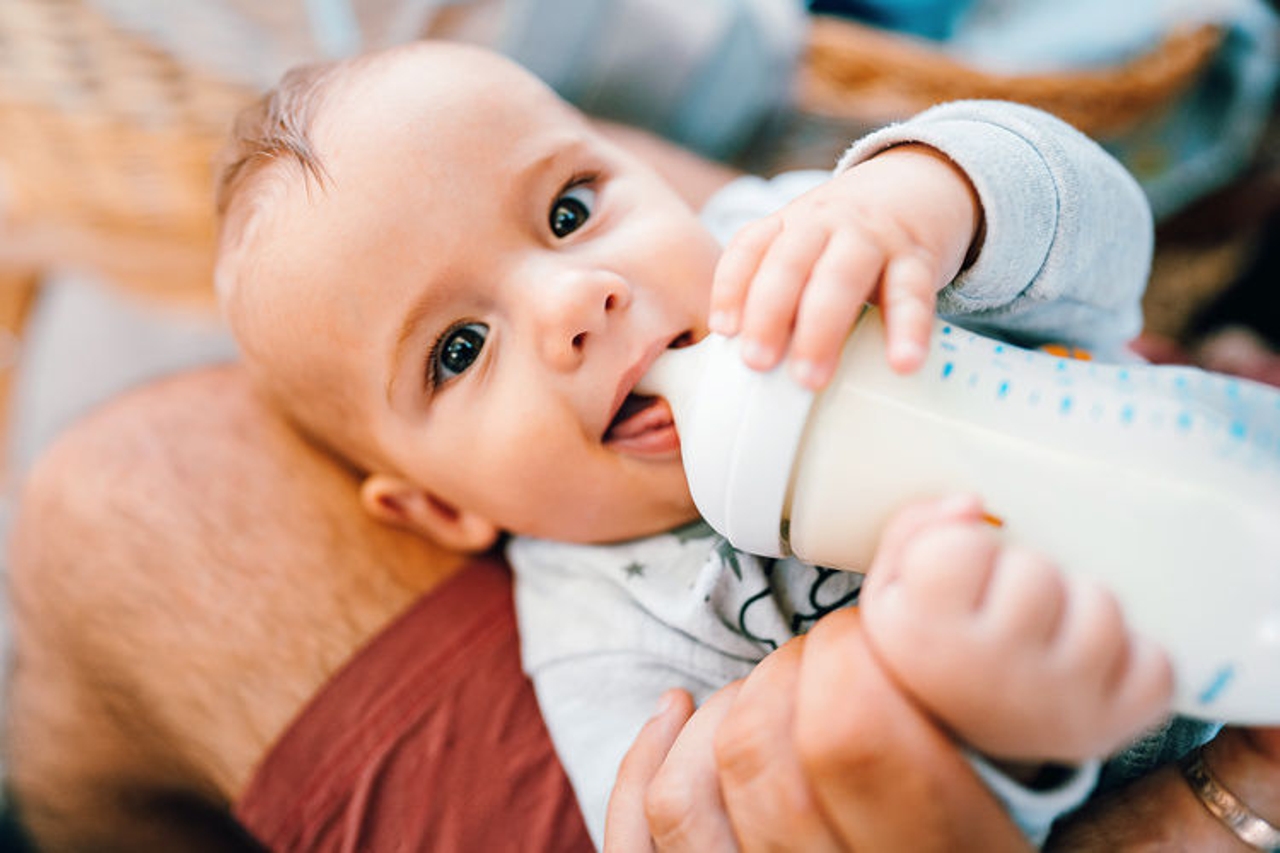Hyponatraemia, also known as ‘water intoxication’ is a condition that occurs in adults and infants when too much water is consumed without enough nutrients.
This condition occurs more quickly in infants than in adults, due to babies’ underdeveloped kidneys. Too much water can dilute the body’s sodium levels, which in severe cases can lead to seizures, headaches, brain damage or death. But don’t worry! Water intoxication is rare and easy to avoid.
How do I avoid water intoxication for my newborn?
Avoid water intoxication by avoiding giving your little one water in their early months. As a rule of thumb, infants should not consume anything other than breastmilk or formula for their first six months.
From six months onwards, you can start to slowly introduce water into your baby’s diet. Always make sure to boil water and let it cool before your baby has a drink. Keep the amount to a minimum – generally just a few sips while they eat as you switch to solid foods is enough. This helps them learn to drink from cups, as well as reducing the risk of constipation which can happen when introducing solids.
Take care not to dilute breastmilk or formula with water in the first six months. If you are experiencing challenges with expressing enough breast milk or affording enough formula, chat to your GP or lactation consultant. Diluting milk with water is not the solution as it can be dangerous.
When the weather is hot, it may seem like your little one needs water. This is not the case; try cooling them down with cold towels instead.
How can I tell if my baby has water intoxication?
If your baby is under six months and has had any water to drink, or if your baby aged six to twelve months has had a significant amount of water to drink, watch out for:
- Irritability
- Drowsiness
- Low body temperature
- Puffiness of the face
If you are concerned that your baby may have water intoxication, or if later-stage symptoms such as seizures occur, call 000 or head to the emergency room.
Water intoxication is quite simple to avoid, and it is unlikely this is something you’ll need to worry about with your newborn so long as you are mindful of their water intake!
Recommended Articles:
https://www.babybunting.com.au/baby-talk/knowing-when-to-switch-to-solids
